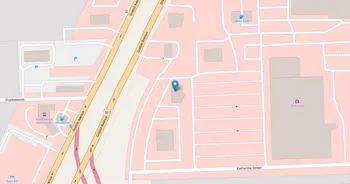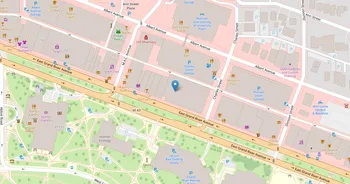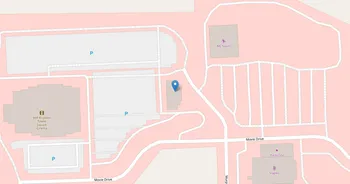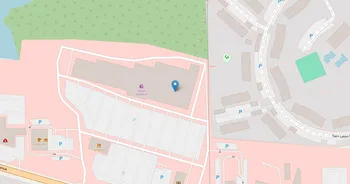Yeshiva Gedolah of Greater Detroit : Overview, Courses, Scholarships & Rankings
About Yeshiva Gedolah of Greater Detroit
Set in a tight-knit Jewish neighborhood of Oak Park, Yeshiva Gedolah of Greater Detroit has a reputation for immersive text study paired with steady, personal mentoring. Coursework centers on deep reading, analytical thinking, and applied ethics, helping students build discipline and clarity. The campus offers a bright study hall, a well used library, quiet spaces for chavrusa learning, and approachable faculty who guide students through both academics and day to day life.
Student life leans communal, with shared prayer, lively discussions, and low key gatherings that feel genuine. It's a serious place, but warm, with occasional late night learning that keeps the study hall glowing. Nearby parks, community centers, and kosher spots keep off hours relaxed, while Metro Detroit's arts and civic scene sits within easy reach. The yeshiva has a reputation for respectful debate and a purposeful rhythm, and for linking students to rabbis, schools, and nonprofits for experience that points toward education, community leadership, or further advanced study.
Key Institutional Details
Contact & Profile
Academic & Institutional
Academic Programs & Fields of Study
Yeshiva Gedolah of Greater Detroit offers 1 degree programs across 1 major academic fields, graduating approximately 10 students annually. The most popular fields by graduate volume are Philosophy (1 programs, 10 graduates). Explore program details, award levels, and graduate demographics below.
Philosophy (1 programs, 10 graduates)
Philosophical Studies, Ethics and Religious Thought
| Program Name | Graduates | Gender Distribution | Award Levels | CIP Code |
|---|---|---|---|---|
| Talmudic Studies | 10 |
|
Bachelor's
|
38.0207 |
Admission Requirements & Test Scores
Comprehensive overview of admission criteria, standardized test score ranges, and application requirements for prospective students at Yeshiva Gedolah of Greater Detroit.
Application Requirements
Data based on IPEDS for 2022-2023 academic year. Test score ranges represent the middle 50% of admitted students (25th-75th percentile). Requirements may vary by program.
Tuition, Fees & Estimated Costs
Overview of tuition rates, housing, and other annual education expenses for undergraduate and graduate students
Financial Aid & Student Support
Summary of scholarships, grants, student loans, and financial aid statistics for undergraduate students
Student Success Metrics
Graduation rates and post-graduation earnings to help assess student outcomes and long-term value of education.
Loan Burden & Repayment Outcomes
Breakdown of loan repayment rates and student debt levels by income and dependency status.
Frequently Asked Questions
Find answers to the most common questions about Yeshiva Gedolah of Greater Detroit
How much does it cost to attend Yeshiva Gedolah of Greater Detroit?
The annual tuition at Yeshiva Gedolah of Greater Detroit is $8,600 for in-state students. When including room and board, books, and other expenses, the total estimated cost is approximately $19,900 for in-state students. Additional costs include room and board $5,000 (on) / $15,600 (off) and books and supplies $300.
Data based on IPEDS program completions for 2022-2023 academic year. Tuition and cost estimates are approximate and may not include all fees, personal expenses, or transportation costs.
What academic programs and degree levels does Yeshiva Gedolah of Greater Detroit offer?
Yeshiva Gedolah of Greater Detroit offers 1 academic programs across 1 major fields of study, with available degree levels: Bachelor's.
Most popular program areas include:
- Philosophical Studies, Ethics and Religious Thought (1 programs)
Data based on IPEDS program completions for 2023-2024 academic year. Numbers reflect programs where students graduated, not all offered programs.
What is the acceptance rate for Yeshiva Gedolah of Greater Detroit?
Yeshiva Gedolah of Greater Detroit has an 92.6% acceptance rate and a 100% yield rate, making it moderately selective.
Admission statistics breakdown:
- Total applicants: 27
- Students admitted: 25
- Students enrolled: 25
Data based on IPEDS for 2022-2023 academic year. Admission statistics may vary by program and application cycle.
What financial aid and scholarships are available at Yeshiva Gedolah of Greater Detroit?
Yeshiva Gedolah of Greater Detroit provides financial aid to 31% of first-time, full-time students, with average grants of $10,309 and average loans of $0.
Average financial aid amounts by type:
- Pell grants: $6,389
- Institutional grants: $6,878
The university supports 17 students with grants and 0 students with loans annually.
Data based on IPEDS for 2022-2023 academic year. Financial aid amounts and percentages may vary by program, enrollment status, and individual circumstances.
Related Universities




Found something useful? Help others discover it too! Share with friends, on social media, or save for later - every share helps someone find the information they need.